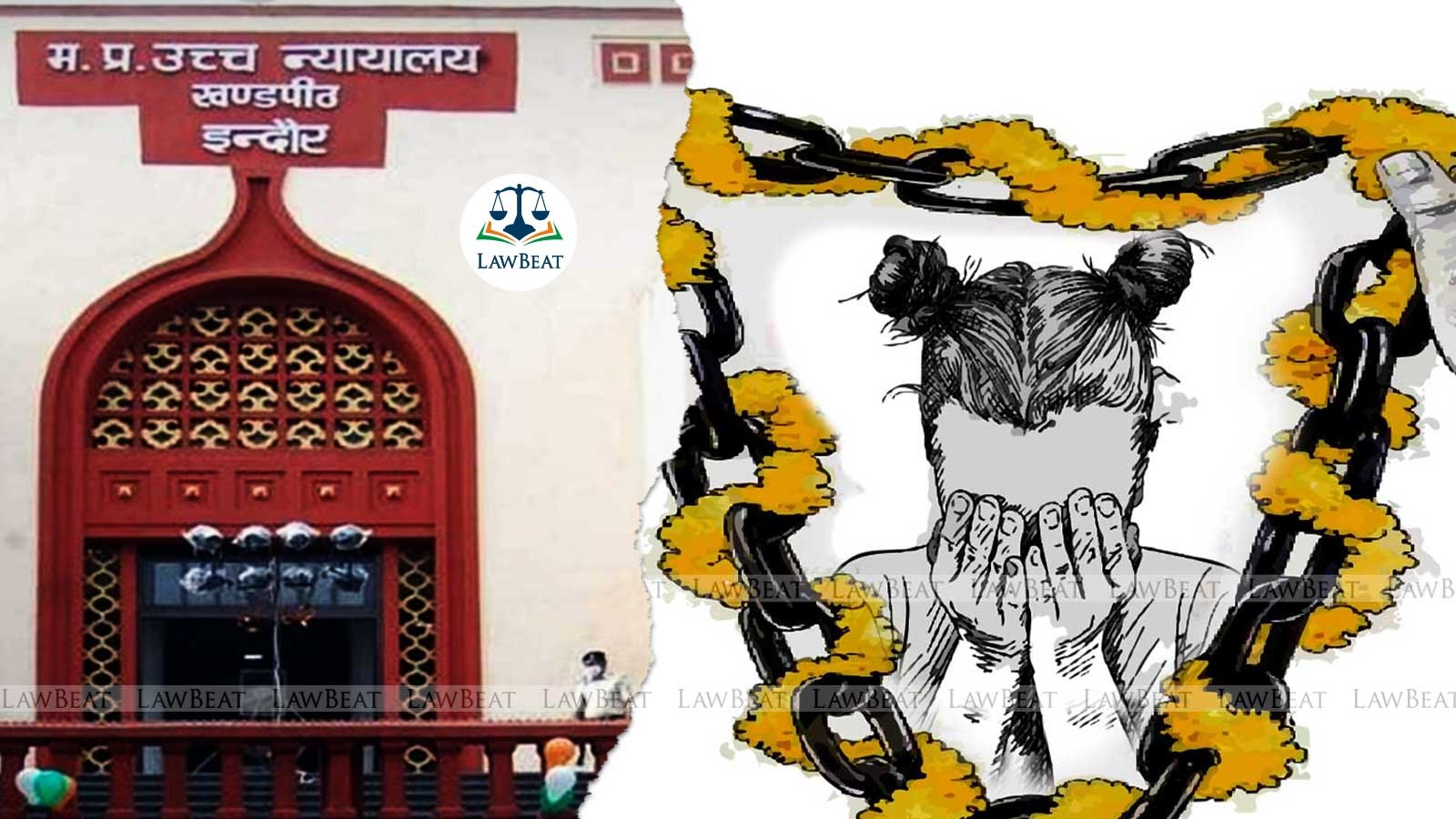Marriage Involving Minor Female and Major Male Voidable Under Child Marriage Act, Even if Not Covered By Hindu Marriage Act : Madhya Pradesh HC

The court held that although the Hindu Marriage Act does not directly address child marriage annulment under its sections 11 and 12, relief can still be pursued under section 13 on the grounds of cruelty
The Madhya Pradesh High Court’s Indore Bench (HC) has declared that a marriage involving a minor female and a major male is voidable under the Prohibition of Child Marriage Act (PCMA), 2006, even if it does not fall under the purview of the Hindu Marriage Act (HMA), 1955.
The judgment, delivered by a division bench of Justice Vivek Rusia and Justice Binod Kumar Dwivedi, observed that while the HMA does not list age-related violations as grounds for declaring a marriage void, the PCMA, being a later enactment, prevails. With this observation, the HC overturned the trial court's decision and nullified the marriage of a 15-year-old bride with a man suffering from blindness in one eye.
The case related to the appellant (wife), who was married at the age of 15 to the respondent (husband) and sought annulment of her marriage under Sections 11 and 12 of the HMA, claiming that the marriage was either void or voidable. She argued that at the time of her marriage on May 21, 2009, she was a minor and unaware of the respondent’s blindness in one eye. She also contended that despite living with her husband after the marriage, the couple never consummated their relationship. The wife argued that under Section 5 of the HMA, the bride must have completed the age of 18 years at the time of marriage. It was also pointed out that while a marriage in violation of this provision is not explicitly void under the HMA, the PCMA, 2006, provides that any child marriage is voidable at the option of the minor party. The appellant cited judgments from the Supreme Court, including the case of ‘Independent Thought V/s Union of India and another’, (2017) and Madras High Court’s ruling in ‘T. Sivakumar V/s The Inspector of Police, Thiruvallur and others’, (2011), which reinforced that such marriages are voidable, not void.
The husband, in his defence, claimed that he was unaware of the appellant's age at the time of marriage. He further stated that the marriage was arranged by the appellant's mother, maternal uncle, and maternal grandfather, and that the appellant had been living with her parents since the marriage. It was further contended that the trial court was correct in dismissing the suit, as the HMA does not provide grounds for declaring the marriage void or voidable in cases where the bride was a minor. He argued that unless the HMA is amended, such a marriage cannot be declared voidable based on the age of the bride alone.
The trial court dismissed the wife's petition, ruling that the marriage could not be declared void or voidable under the HMA. Thereafter, the wife approached the High Court.
The High Court observed that the trial court had erred in applying only the provisions of the HMA, ignoring the PCMA, 2006. The court highlighted that “At the time of marriage as well as during the pendency of the suit, the PCMA, 2006 was very much enforced. Section 3 of PCMA, 2006 specifically mandates that every child marriage whether solemnized before or after the commencement of this Act, shall be voidable at the option of the contracting party who was a child at the time of marriage…”
The court found that in the present case, the appellant, being a minor, filed the suit under the guardianship of her father. However, due to a legal oversight, the claim was incorrectly made under Sections 5, 11, and 12 of the HMA instead of Section 3 of the PCMA, 2006.
The court emphasised that the “Child Marriage Act has been enacted with aims and objects to make provision to declare child marriage as voidable…,” citing the Supreme Court ruling in ‘Independent Thought’, which clarified that a marriage involving a female under 18 years of age is not void but voidable.
The court further stated that while the HMA does not allow for the annulment of marriages where the bride is under 16 under Sections 11 or 12, the District Court under the PCMA has the authority to declare such a marriage voidable. The doctrine of "pari materia" allows courts to refer to statutes dealing with the same subject matter when interpreting legal provisions. In this context, the provisions of the PCMA should have been considered alongside the HMA, as they address similar issues.
Additionally, the court emphasised that even in situations where the HMA does not provide a remedy, Section 13 allows for divorce, as the marriage of a minor female to a major male could cause both mental and physical cruelty, thus qualifying as a valid ground for divorce. "Marriage of a minor girl to a major male will cause mental and physical cruelty as she is not prepared for marital obligations," the court noted.
In light of these findings, the court set aside the judgment and decree of the trial court and declared the marriage null and void.
Cause Title : X v Y [FIRST APPEAL No. 450 of 2014]
